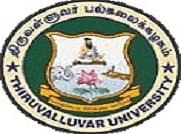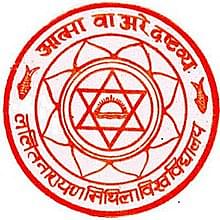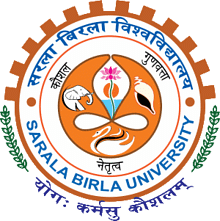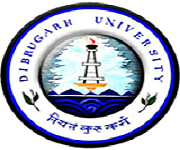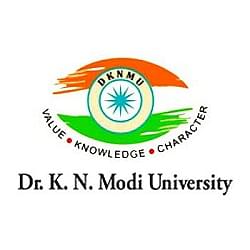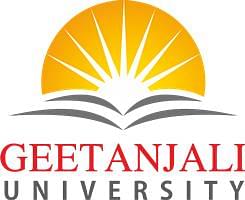Introduction about Ph. D in De-commodifying agri
PhD in De-commodifying Agriculture from top college
is an advanced academic program that explores alternative agricultural models
aimed at reducing the commodification of food and farming systems. This
interdisciplinary field addresses the economic, social, and environmental
impacts of conventional, industrial agriculture and seeks to develop
sustainable, equitable, and resilient agricultural practices.
Overview
De-commodification
in agriculture refers to
practices and policies that prioritize local food systems, agroecological
methods, and equitable resource distribution over the large-scale,
profit-driven models of conventional agriculture. The PhD program delves into
various aspects of this transformation, including:
Agroecology: Emphasizing ecological principles in
farming to enhance biodiversity, soil health, and ecosystem services.
Food Sovereignty: Advocating for the rights of local
communities to control their own food systems, ensuring access to healthy,
culturally appropriate food produced through ecologically sound and sustainable
methods.
Sustainable
Agriculture: Developing
practices that meet current food needs without compromising the ability of
future generations to meet their own needs.
Economic Models: Exploring alternative economic models that
support small-scale farmers, fair trade, and local food systems.
Objectives
The primary
objectives of the program are to:
Understand the
Limits of Commodification:
Analyze the impacts of treating food and agricultural products as mere
commodities, focusing on the negative effects on the environment, social
equity, and food security.
Promote Sustainable
Practices: Research and
develop sustainable farming practices that reduce dependence on industrial
inputs and enhance ecological resilience.
Empower Communities: Investigate ways to empower local
communities through food sovereignty, ensuring they have control over their
food production and distribution systems.
Influence Policy: Contribute to policy development that
supports de-commodified agriculture, emphasizing sustainability, equity, and
resilience.
Curriculum and Research Areas
The curriculum
typically includes core courses, electives, and extensive research. Core areas
of study might include:
Agroecology and
Sustainable Farming Practices
Economics of
Sustainable Agriculture
Food Systems and
Policy
Environmental
Impact of Agricultural Practices
Community
Development and Food Sovereignty
Research areas can
vary widely and may encompass topics such as:
Case studies of
successful de-commodified agricultural systems.
Impact assessments
of agroecological practices on biodiversity and soil health.
Economic analyses
of alternative food networks (e.g., farmers' markets, community-supported
agriculture).
Policy frameworks
supporting sustainable agriculture and food sovereignty.
Social justice
issues in food systems, including access to land and resources for marginalized
communities.
Fieldwork and Practical Experience
Students often
engage in fieldwork, collaborating with local farms, communities, and
organizations to gather data and implement research projects. Practical
experience might include:
Working on
agroecological farms.
Participating in
food policy councils.
Collaborating with
NGOs and community groups focused on sustainable agriculture.
Conducting
participatory action research with farming communities.
Career Opportunities
Graduates of this
program are equipped for diverse careers in academia, research institutions,
governmental and non-governmental organizations, and advocacy groups. They may
pursue roles such as:
Agricultural and
environmental researchers.
Policy analysts and
advisors.
Sustainable
agriculture consultants.
Educators and
academic professors.
Community
development coordinators.
Leaders in NGOs and
international organizations focusing on food security and sustainability.
Conclusion
A PhD in
De-commodifying Agriculture prepares scholars and practitioners to challenge
the conventional agricultural paradigm and promote systems that are
environmentally sustainable, socially equitable, and economically viable.
Through rigorous research and practical engagement, graduates contribute to the
transformation of agriculture, ensuring a healthier, more resilient future for
global food systems.
What is admission process for Ph. D in
De-commodifying agri. ?
The admission process for PhD in De-commodifying Agriculture generally involves several
steps, similar to those for other PhD programs but with specific focuses
tailored to this interdisciplinary and sustainability-oriented field. Below is
an overview of the typical steps and requirements:
1. Identify Suitable Programs and
Supervisors
Research
Institutions: Look for
universities and research centers that offer PhD programs in sustainable
agriculture, agroecology, food systems, or related fields.
Potential
Supervisors: Identify and
contact faculty members whose research interests align with your own.
Establishing a connection with a potential supervisor can be crucial.
2. Meet Academic Requirements
Educational
Background: Typically, a
master’s degree in a related field such as agriculture, environmental science,
economics, sociology, or geography is required.
Academic
Transcripts: Provide
official transcripts from all post-secondary institutions attended,
demonstrating a strong academic record.
3. Prepare Application Materials
Research Proposal: Develop a detailed research proposal that
outlines your intended research topic, objectives, methodology, and
significance. This proposal should align with the interests of potential
supervisors and the program’s focus on de-commodifying agriculture.
Personal Statement: Write a personal statement explaining your
academic background, research interests, career goals, and why you are
interested in this specific PhD program.
Curriculum Vitae
(CV): Submit an updated CV
highlighting your academic achievements, research experience, publications, and
any relevant work or volunteer experience.
4. Letters of Recommendation
References: Obtain strong letters of recommendation
from academic or professional references who can attest to your research
capabilities, academic performance, and suitability for a PhD program.
Typically, at least two to three letters are required.
5. Standardized Tests (if
required)
GRE/GMAT: Some programs may require standardized
test scores such as the GRE (Graduate Record Examination) or GMAT (Graduate
Management Admission Test). Check the specific requirements of each program.
6. Language Proficiency
English Proficiency
Tests: For non-native
English speakers, most institutions require proof of English proficiency
through tests like TOEFL (Test of English as a Foreign Language) or IELTS
(International English Language Testing System).
Minimum Scores: Each institution will have its own minimum
score requirements for these tests.
7. Submit Application
Online Application: Complete the online application form
provided by the institution. Ensure all required documents are uploaded or sent
as specified.
Application Fee: Pay any applicable application fees.
8. Interview (if required)
Interview Process: Some programs may require an interview as
part of the selection process. This could be conducted in person, over the
phone, or via video conferencing.
9. Funding and Scholarships
Apply for Funding: Explore funding options such as
scholarships, grants, and assistantships. Many programs offer funding packages
that cover tuition and provide a stipend for living expenses.
10. Decision and Enrollment
Admission Decision: After the review process, the admissions
committee will notify you of their decision. If accepted, you will receive an
offer letter.
Acceptance and
Enrollment: Accept the
offer and complete any additional enrollment procedures required by the
institution.
Additional Tips:
Tailor Your
Proposal: Ensure your
research proposal is well-aligned with the program’s focus and the interests of
potential supervisors.
Highlight Relevant
Experience: Emphasize any
practical experience in sustainable agriculture, community projects, or
relevant research in your CV and personal statement.
Connect Early: Early contact with potential supervisors
can significantly enhance your application, as it shows initiative and allows
you to refine your research proposal with their guidance.
By following these
steps, you can effectively navigate the admission process for a PhD in
De-commodifying Agriculture, ensuring that you meet all requirements and submit
a compelling application.
What is eligibility for Ph. D in De-commodifying
agri?
Eligibility for PhD in De-commodifying Agriculture typically involves meeting a set of
academic, research, and sometimes professional criteria. These requirements
ensure that candidates are well-prepared for the rigorous and interdisciplinary
nature of the program. Below are the general eligibility criteria:
1. Academic Qualifications
Master’s Degree: Applicants should usually hold a master’s
degree in a relevant field such as agriculture, environmental science, ecology,
geography, economics, sociology, or a related discipline. Some programs may
consider applicants with a strong bachelor's degree and significant relevant
experience.
Academic
Transcripts: Provide
official transcripts from all post-secondary institutions attended, showing a
strong academic record. A minimum GPA may be specified by the institution.
2. Research Experience
Relevant Research: Prior research experience in areas related
to sustainable agriculture, agroecology, food systems, or environmental studies
is often required. This can include involvement in research projects, thesis
work, publications, or professional work experience that includes research
components.
Research Proposal: Submission of a detailed research proposal
outlining your intended research topic, objectives, methodology, and
significance. The proposal should demonstrate alignment with the program’s
focus and the expertise of potential supervisors.
3. Letters of Recommendation
References: Strong letters of recommendation from
academic or professional references who can attest to your research
capabilities, academic performance, and suitability for a PhD program.
Typically, at least two to three letters are required.
4. Language Proficiency
English Proficiency: For non-native English speakers, proof of
English proficiency is usually required. Common tests include the TOEFL (Test
of English as a Foreign Language) or IELTS (International English Language
Testing System).
Minimum Scores: Each institution will have its own minimum
score requirements for these tests.
5. Standardized Tests (if
required)
GRE/GMAT: Some programs may require standardized
test scores such as the GRE (Graduate Record Examination) or GMAT (Graduate
Management Admission Test). Check the specific requirements of each program.
6. Personal Statement
Statement of
Purpose: A personal
statement or letter of intent explaining your academic background, research
interests, career goals, and why you are interested in this specific PhD
program. This should reflect your commitment to de-commodifying agriculture and
related sustainable practices.
7. Curriculum Vitae (CV)
Detailed CV: An updated CV that includes your academic
achievements, research experience, publications, relevant work or volunteer
experience, and any other pertinent information.
8. Interview (if required)
Interview Process: Some programs may require an interview as
part of the selection process. This could be conducted in person, over the
phone, or via video conferencing.
9. Additional Requirements
Specific Program
Requirements: Some programs
may have additional requirements such as specific coursework, certifications,
or field experience. It’s important to review the specific prerequisites for
each program you are interested in.
Meeting these
eligibility criteria ensures that you are well-prepared for the rigorous
demands of a PhD program in De-commodifying Agriculture and capable of
contributing significantly to research and practices in this field.
What is syllabus for Phd in De-commodifying agri ?
The syllabus for PhD in De-commodifying Agriculture is designed to provide a comprehensive
understanding of sustainable agricultural practices, socio-economic
implications, and the ecological impact of de-commodifying food systems. The
program typically includes a mix of core courses, electives, research, and
practical experiences. Below is an overview of the typical components and
subjects that might be included in the syllabus:
1. Core Courses
These foundational
courses provide essential knowledge and skills in key areas:
Agroecology: Principles and practices of ecological
agriculture, focusing on biodiversity, soil health, and ecosystem services.
Sustainable
Agriculture: Strategies and
methods for sustainable farming, including organic farming, permaculture, and
regenerative agriculture.
Food Systems and
Policy: Analysis of global
and local food systems, including policies that impact food production,
distribution, and consumption.
Environmental
Economics: Economic
theories and models related to sustainability, resource management, and
environmental impacts.
Social Dimensions
of Agriculture: Study of
social justice issues, community development, and the role of local and
indigenous knowledge in sustainable agriculture.
2. Elective Courses
Electives allow
students to specialize in areas relevant to their research interests:
Food Sovereignty
and Security: Concepts and
practices that empower communities to control their food systems and ensure
access to healthy, culturally appropriate food.
Climate Change and
Agriculture: Impact of
climate change on agriculture and strategies for adaptation and mitigation.
Participatory
Research Methods:
Techniques for involving local communities and stakeholders in the research
process.
Agroforestry: Integration of trees and shrubs into
agricultural landscapes for enhanced sustainability.
Rural Development: Approaches to improving the livelihoods
and resilience of rural communities through sustainable agriculture.
3. Research Seminars and Workshops
Research
Methodologies: Advanced
methods for scientific research, including qualitative and quantitative
techniques, data analysis, and fieldwork methods.
Academic Writing
and Communication: Skills
for writing research papers, theses, and grant proposals, and for presenting
research findings.
4. Fieldwork and Practical
Training
Field Research: Extensive fieldwork in various
agricultural settings to collect data, conduct experiments, and observe
sustainable practices.
Laboratory Work: Analysis of field samples and data in a
laboratory setting, using advanced scientific equipment and techniques.
Internships: Practical experience with organizations,
NGOs, or community groups working on sustainable agriculture and food systems.
5. Dissertation Research
Proposal
Development: Formulation of
a detailed research proposal, including literature review, hypothesis, and
methodology.
Independent
Research: Conducting
original research under the guidance of a supervisor, often involving
interdisciplinary approaches.
Dissertation
Writing: Compilation and
presentation of research findings in a dissertation, followed by a defense
before an academic committee.
6. Interdisciplinary Collaboration
and Conferences
Collaborative
Projects: Participation in
collaborative research projects with other students, departments, or external
organizations.
Conferences and
Workshops: Attendance and
presentation at national and international conferences and workshops to share
research findings and gain feedback.





